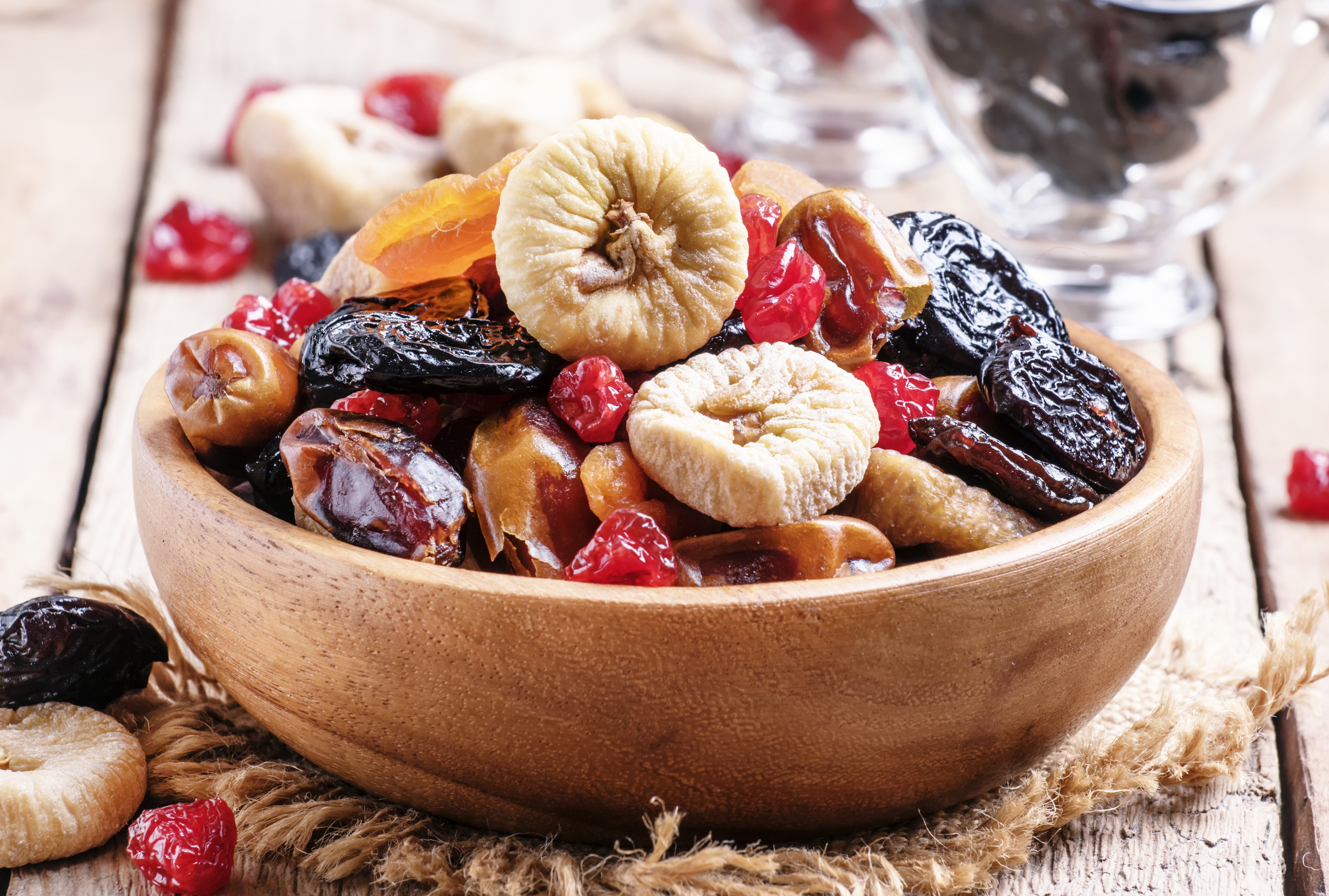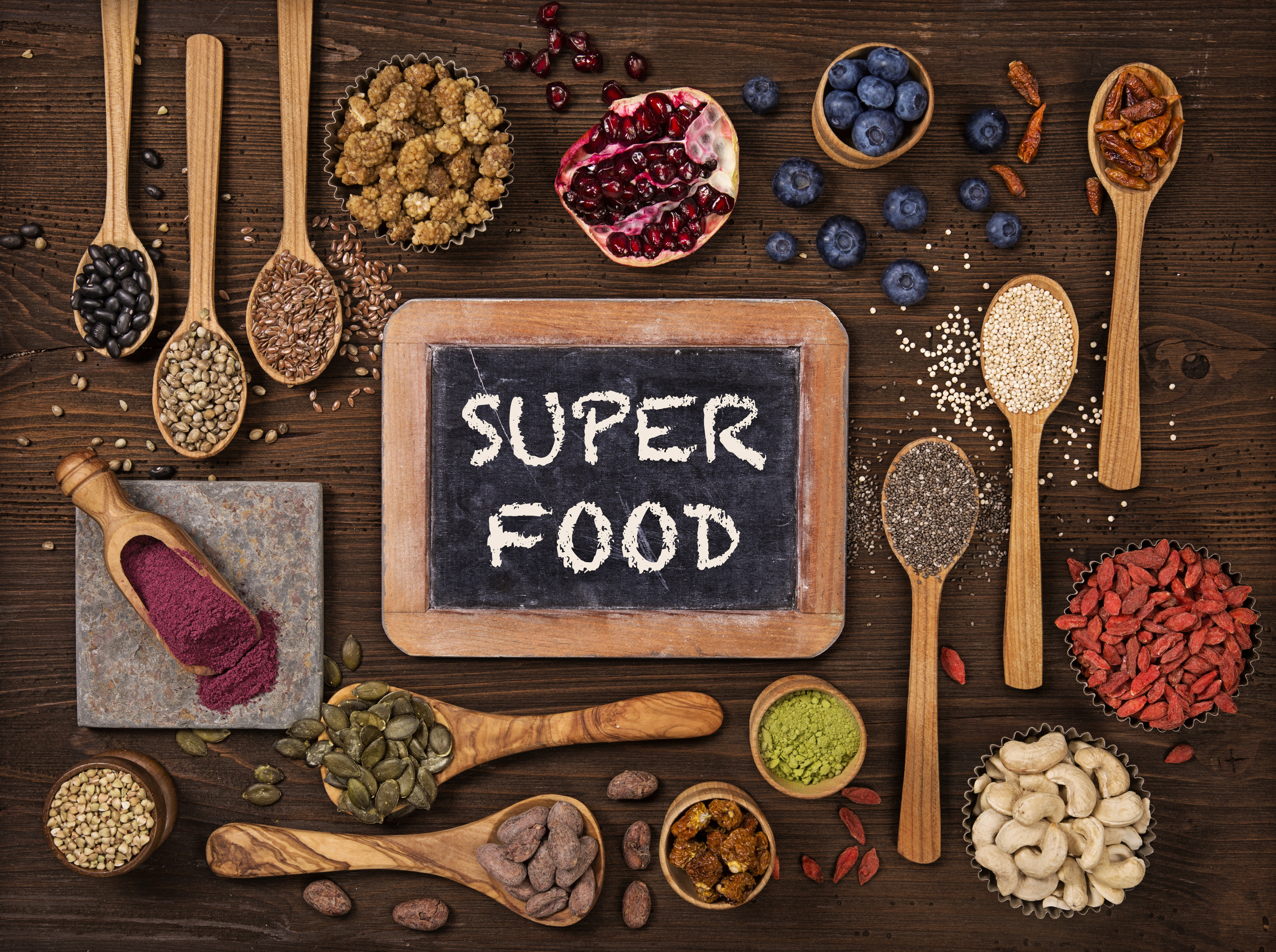
The concept of a ‘Superfood’ was not developed as a scientific principle. As per an article from Harvard TH Chan School of Public Health, this concept started in the 20th century when a banana supplier released a marketing campaign highlighting the nutritional benefits of bananas and it saw incredible success in terms of sales it generated. This trend picked up and has helped companies with billions of dollars in revenues and the concept of superfoods has gained popularity that is sometimes beyond reality. Still consumption of some food items helps our body replenish essential nutrient requirements.
Superfoods are foods — mostly plant-based but also some fish and dairy — that are thought to be nutritionally dense and thus, good for one’s health. They have high vitamin and mineral content. Of late superfoods have become a term that is synonymous with ultra-healthy, nutrient-packed, plant-based foods and supplements.
After a person is diagnosed with cancer, he/she tends to re-evaluate their lifestyle, diet, and health practices. Many patients start by making significant dietary changes in order to support their treatment outcomes and recovery. However, it’s better to consult a nutritionist who can help the person plan their diet, considering their nutritional requirements at each stage of cancer treatment or recovery.
Nutrition plays an important role in the clinical course for a cancer patient, as it helps in maintaining healthy body weight and supporting healing, repair, and recovery. A healthy, nutritious diet is essential to keep up the defence mechanism to fight infections, prevent body tissues from breaking down and help build new tissues. Maintaining good hydration levels is also important.
There is not enough scientific evidence and research to support claims that consuming specific food can reduce the risk or promote survivorship for a particular kind of cancer. But good nutrition is important to everyone, and more so for cancer patients. That means a balanced, minimally processed plant-heavy diet, which can benefit your overall health and energy levels and support your immune system, as well as help you manage symptoms during treatment, and promote survivorship.
Here we discuss the types of foods that are best for cancer patients.
What type of foods should a cancer patient take?
Your cancer treatment may include chemotherapy, radiation therapy, surgery, immunotherapy, or a combination of any of these options. These treatments often make you lose weight and energy, and leave you exhausted.
You need extra calories and proteins to cope with the treatment methods to maintain healthy body weight. Also, some cancer treatments find a better response in patients who consume enough calories and proteins and are well-nourished.
Here are some tips to gain more calories and proteins:
- Divide your three large meals into several small meals, which are eaten throughout the day.
- Eat your small meals with a gap of a few hours, don’t wait till you feel hungry.
- Sprinkle some nuts or seeds over your salad or dessert.
- When you feel very hungry, eat your biggest meal. For instance, make breakfast your biggest meal if you feel most hungry in the morning.
- Have more high-calorie, high-protein beverages.
- Drink fluids between the meals instead of having them with your meals. Having fluids with meals can make you feel full.
- Take a walk or do light exercise before meals to improve your appetite.
- If you feel like having your favourite food, eat it, do not resist your cravings.
- Try to have commercially available or homemade nutrition bars and puddings.
Superfoods for cancer patients
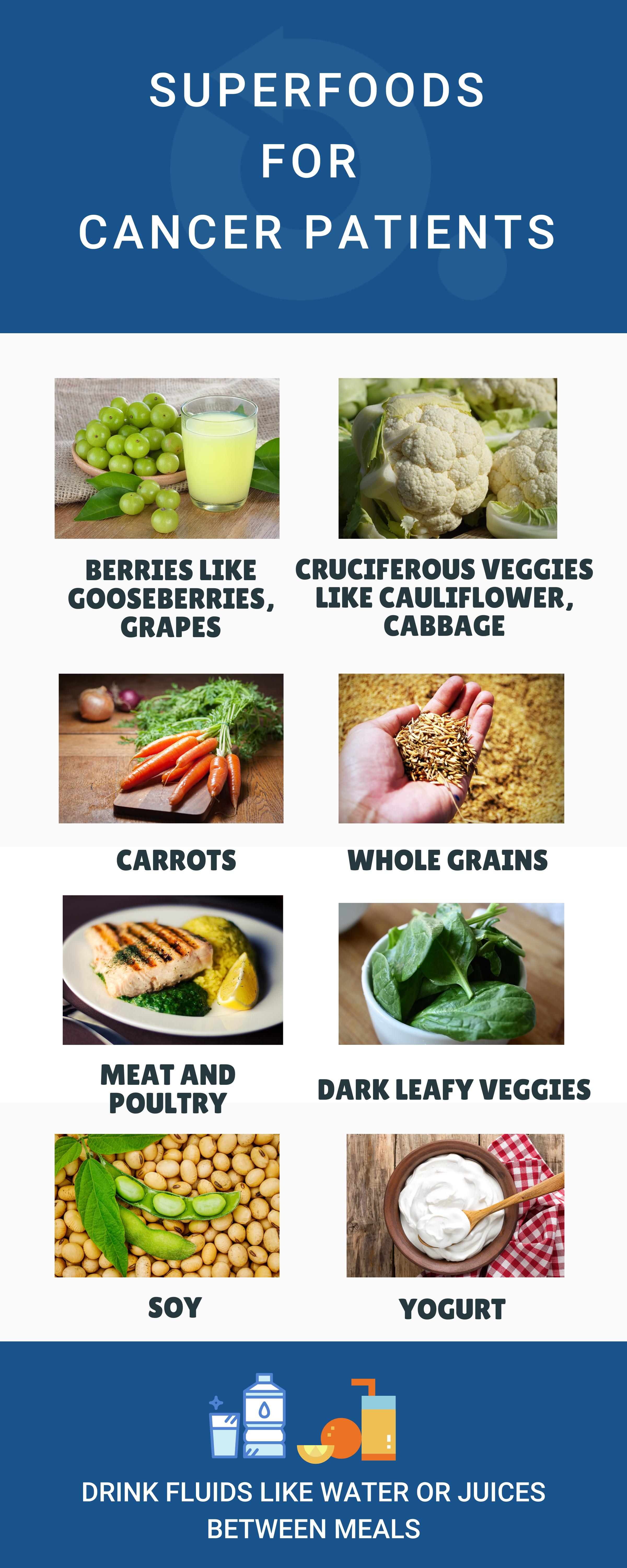
Superfoods are easy on the stomach, are easy to prepare and are packed with nutrients that can help you deal with the side effects of the cancer treatments. The following are some of the superfoods that can be included in the diet of a cancer patient:
1. Berries and other fruits: Fruits that are easy to eat, refreshing, and have high water content are the best options. These include berries, melons, bananas, pineapple, pears, etc.
Blueberries contain several phytochemicals and nutrients, which show anti-cancer effects, antioxidant activity, and a potential to prevent DNA damage.
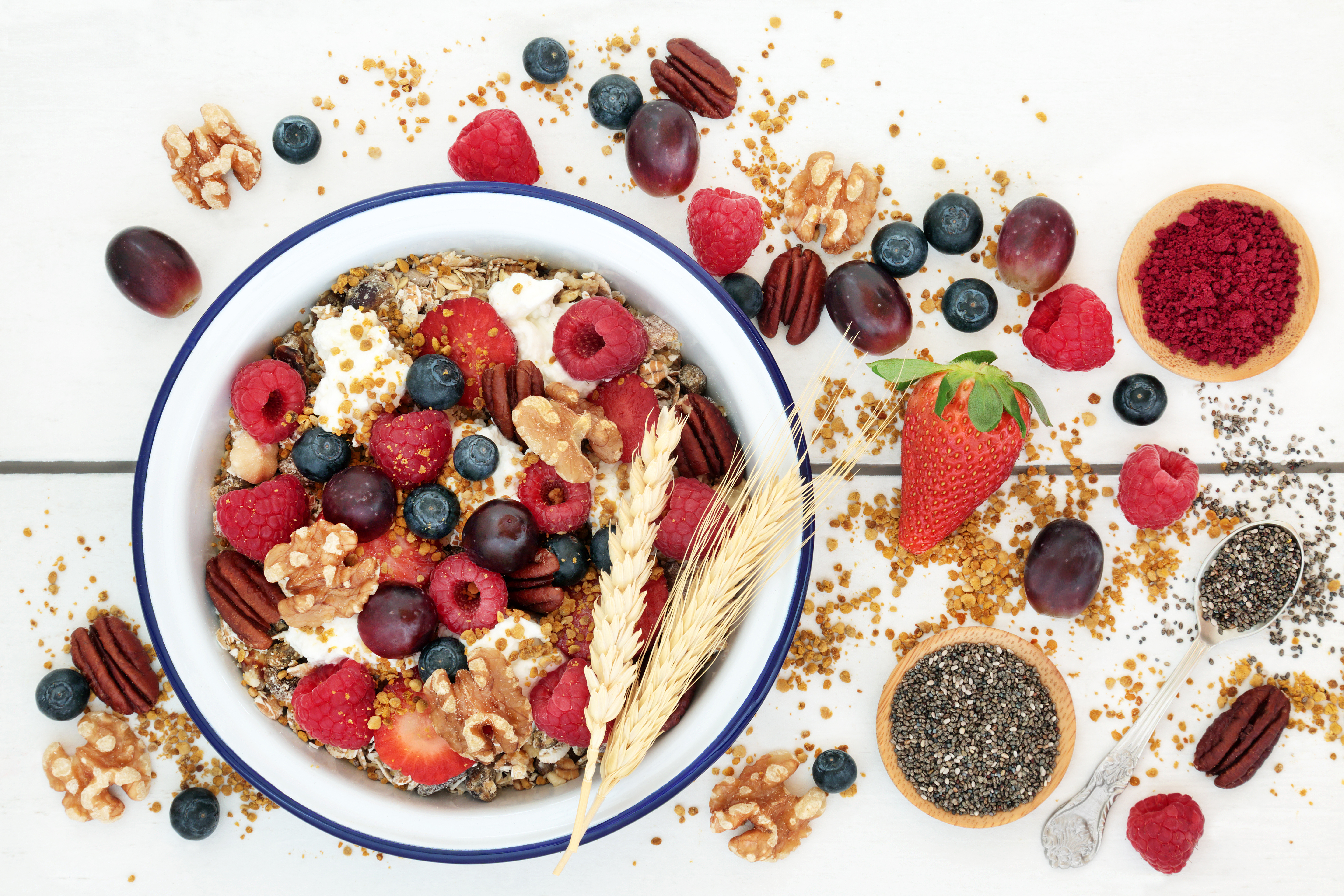
Raspberries and strawberries are rich in antioxidants such as vitamin C, phytochemicals and flavonoids.
Tomatoes contain a phytochemical called lycopene, which is a powerful antioxidant and may be associated with a reduced risk of prostate cancer.
2. Dark leafy vegetables: Dark leafy vegetables like kale and spinach play an important role in fighting against cancer. They are rich in fibre and folate, which may reduce the risk of certain cancers. Folate helps to produce new cells and repair the DNA.
Kale contains carotenoids, which act as antioxidants and enhance the body’s antioxidant defences. These defences prevent free radicals from damaging the DNA.
Kale also contains vitamin C, which is a powerful antioxidant and inhibits the formation of carcinogens.
Spinach is rich in carotenoids like zeaxanthin and lutein, which remove free radicals from the body.
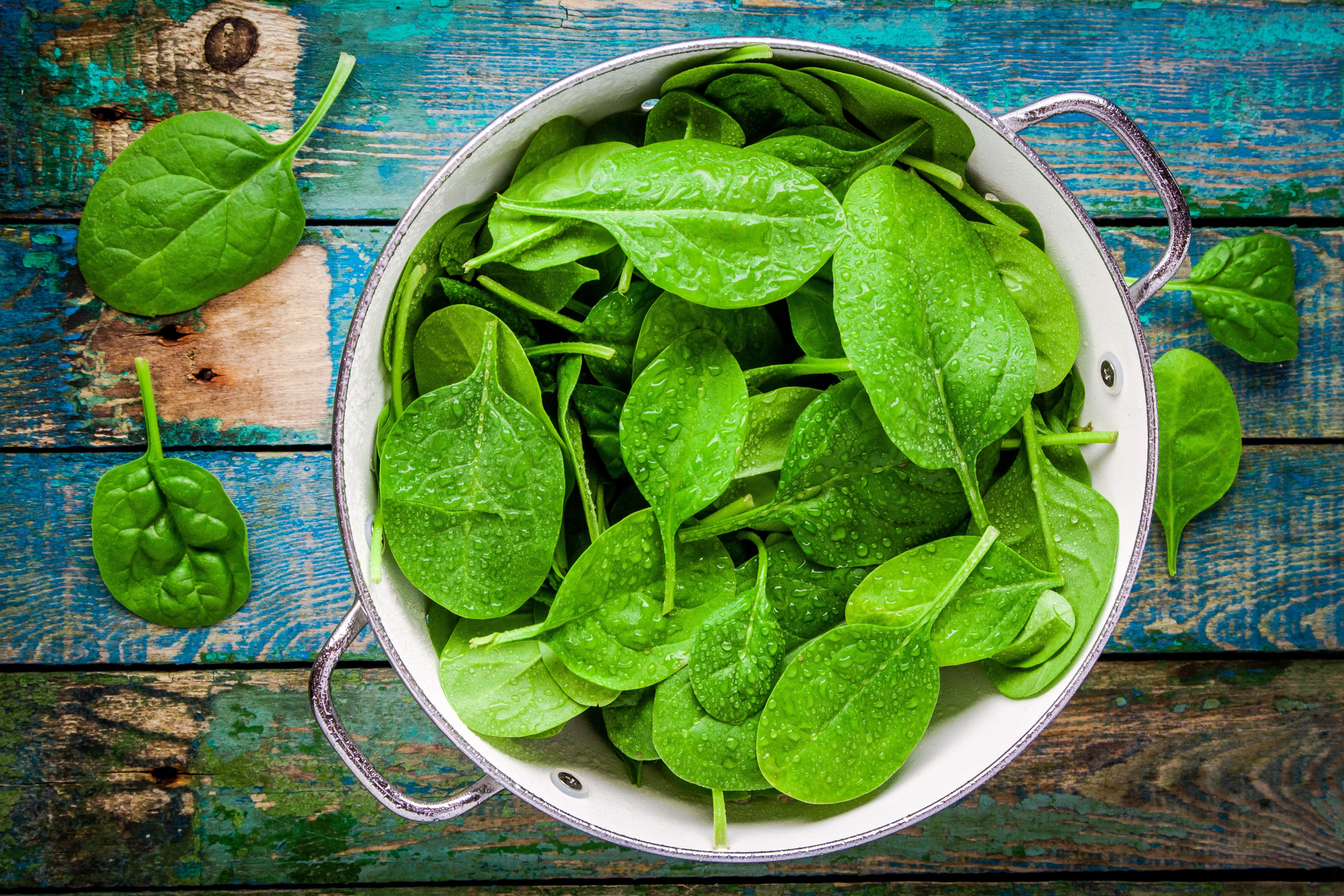
3. Carrots: Carrots are non-starchy vegetables containing beta-carotene (an antioxidant), vitamins and phytochemicals which may protect against various cancers. Also, carrots have a natural pesticide called falcarinol, which may have anti-inflammatory effects.
A report in the Journal of Agriculture and Food Chemistry suggests that cooked carrots supply more antioxidants than raw. Steam or boil the whole carrots and cut them after they are done; this retains the nutrients of the carrots, including falcarinol.
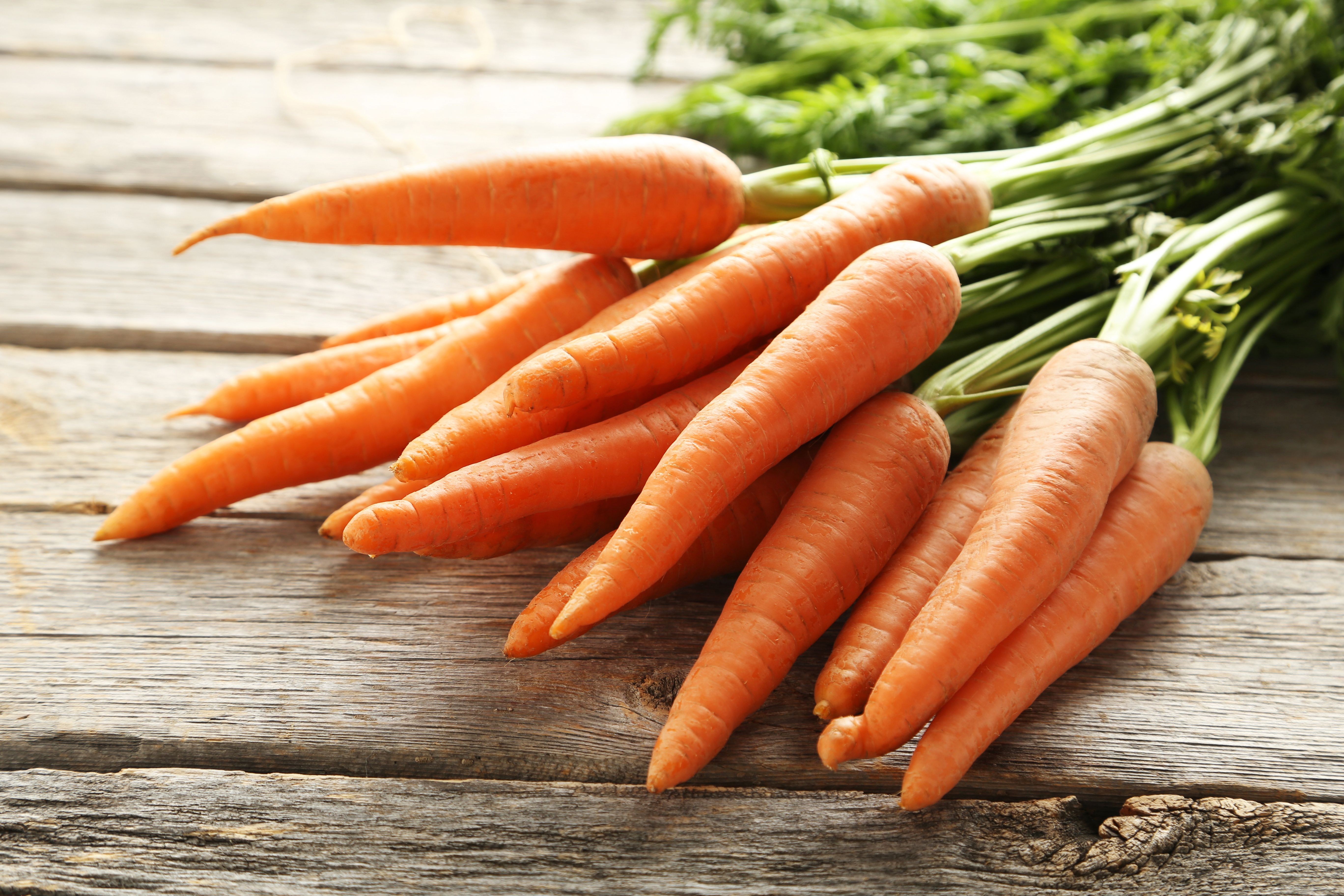
4. Whole grains: Whole grains promote digestive health as they are rich in fibre, carbohydrates, phytochemicals, vitamins and minerals. Whole grains contain certain substances that fight against cancer, including saponins, which may prevent multiplication of the cancer cells, and lignans, which act as an antioxidant.
A study by Soochow University in Suzhou, China, suggests that high fibre content may alter the hormonal actions of hormone-dependent cancers. Prefer products who have the label of ‘100% whole grain’.
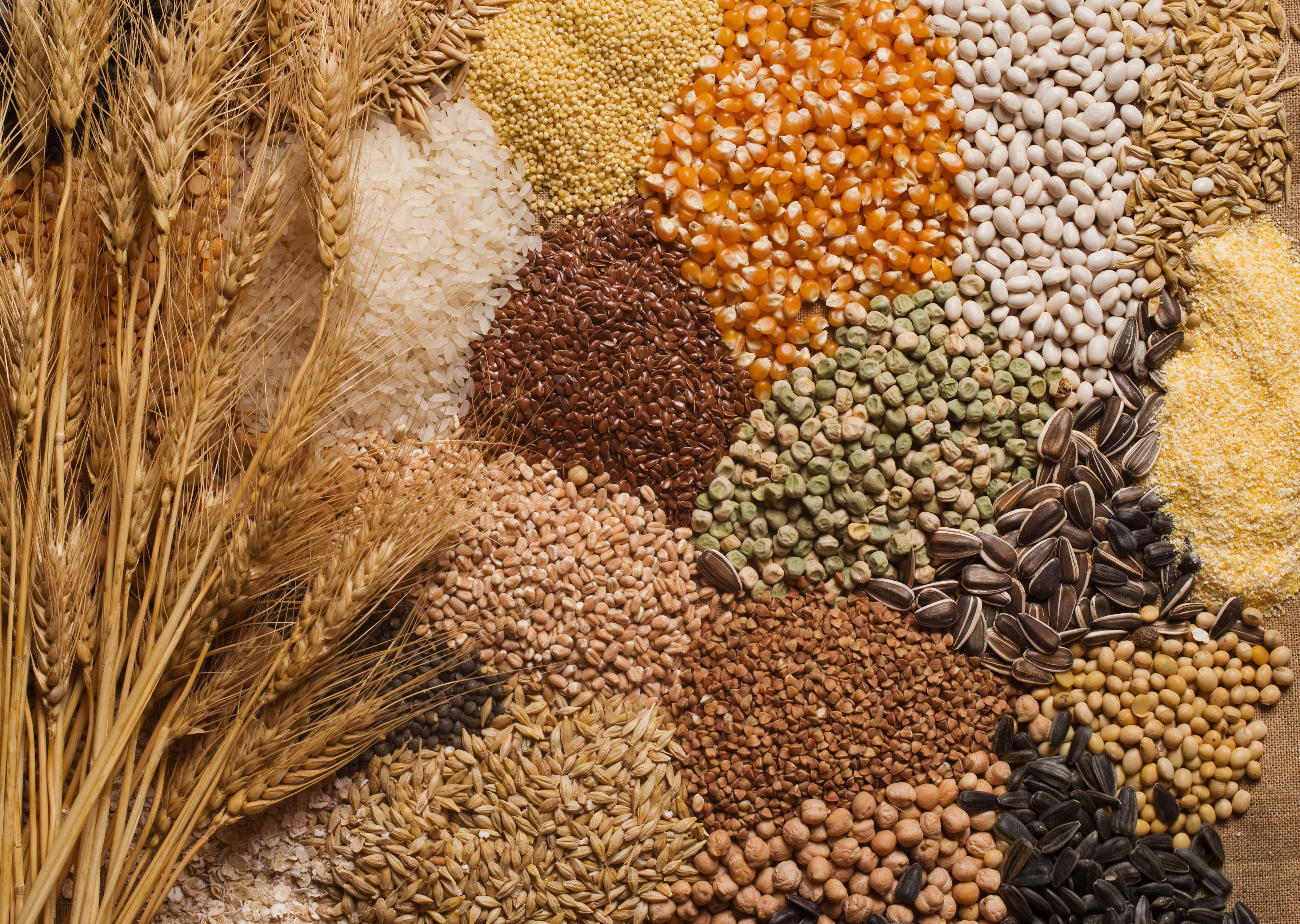
5. Meat and poultry: Good protein sources help to gain muscle mass and maintain healthy body weight. Poultry, meat, fish are all good sources of protein. Look for whole, unprocessed meat that does not contain nitrates. Also, eat only properly cooked eggs and meat, avoid any kind of raw consumption.
6. Cruciferous vegetables: Vegetables like broccoli, cabbage, cauliflower contain phytochemicals called glucosinolates, which produce protective enzymes.
These vegetables are found to reduce the risk of several cancers. Have raw broccoli or steam it and add garlic and olive oil.
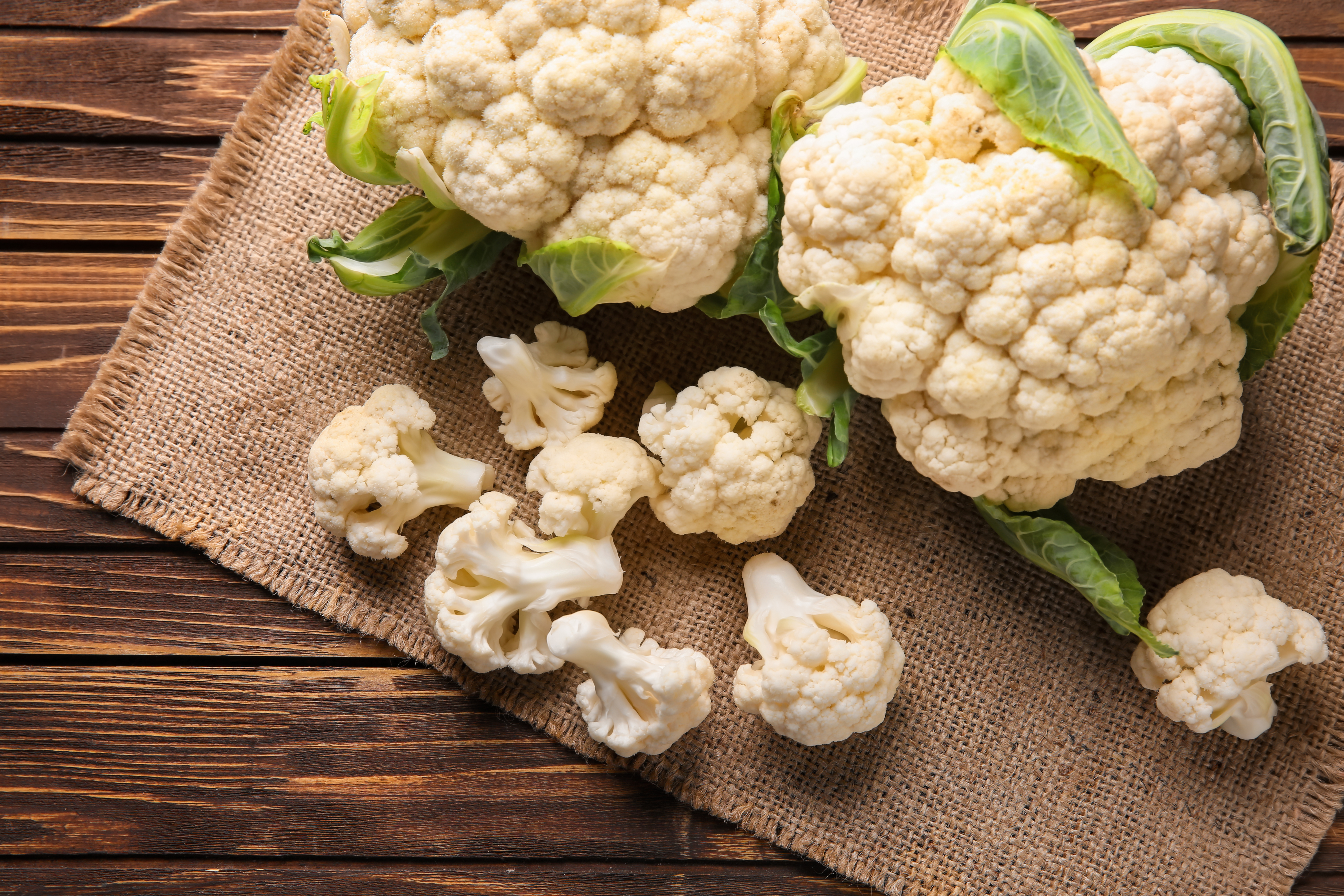
7. Yoghurt: Unsweetened yoghurt promotes healthy digestion, is rich in certain proteins, and is easy to consume. Cinnamon, berries, or slivered almonds can be added for flavour.
8. Soy: Soy contains a phytonutrient called isoflavones, which has anti-cancer properties. Moderate amounts of soy, which is one or two servings of whole soy foods such as soy milk or tofu are safe.
It is important to understand that we need to have a balanced approach in use of high nutrient foods and a ‘superplate’ diet comprising multiple foods with good nutritional content is more effective idea of a superfood.

